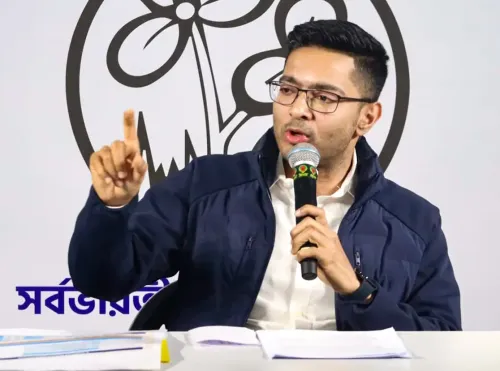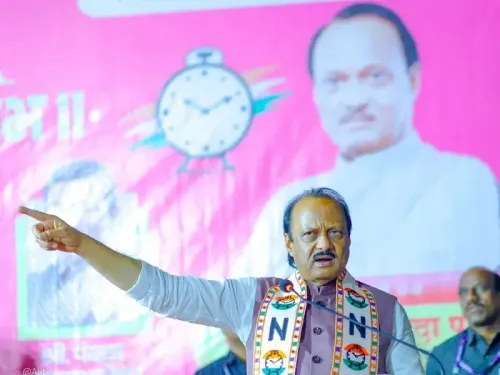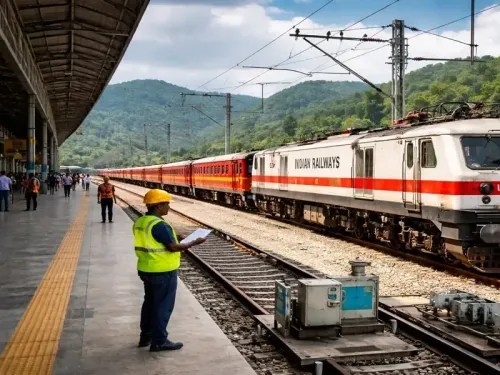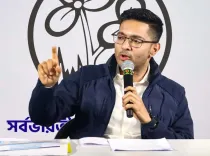What Does the Startup, Entrepreneurship, and Innovation Policy 2025 Entail?
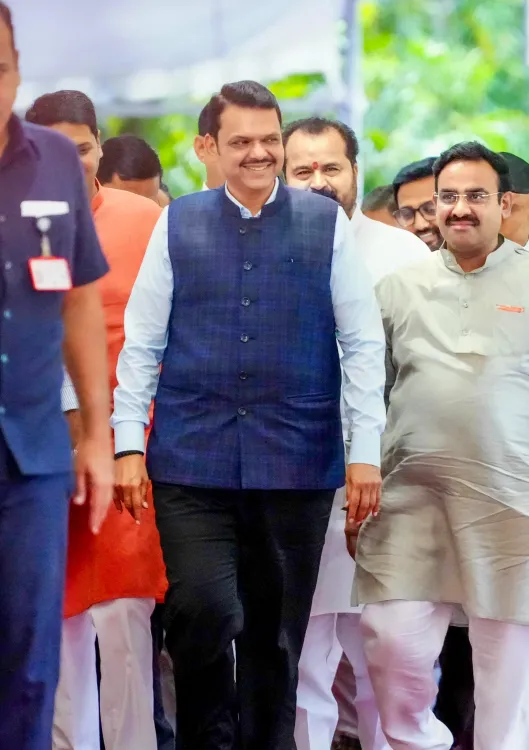
Synopsis
Key Takeaways
- Maharashtra aims to nurture 1.25 lakh entrepreneurs.
- 50,000 startups will be recognized.
- Chief Minister’s Maha-Fund of ₹500 crore to support early-stage entrepreneurs.
- Focus on high-potential sectors, including AI and FinTech.
- Collaboration opportunities with government for selected startups.
Mumbai, Aug 5 (NationPress) The Maharashtra Cabinet, led by Chief Minister Devendra Fadnavis, has officially sanctioned the Startup, Entrepreneurship, and Innovation Policy 2025.
Developed by the Department of Skills, Employment, Entrepreneurship, and Innovation (SEEID) and executed by the Maharashtra State Innovation Society (MSInS), this initiative aims to establish Maharashtra as India's premier destination for startups.
The policy outlines an ambitious five-year plan: to cultivate 1.25 lakh entrepreneurs and acknowledge 50,000 startups. It aspires to create a competitive ecosystem that is inclusive, innovative, and resilient economically.
According to the government release, “The focus spans across emerging technology sectors and underserved communities — urban, rural, women-led, and youth-led enterprises alike.”
CM Fadnavis emphasized that this initiative transcends a mere policy; it represents a commitment to transform Maharashtra into a global hub for innovation-driven entrepreneurship while supporting the state’s aim of achieving a trillion-dollar economy. This aligns with efforts to build world-class infrastructure and foster growth.
Mangal Prabhat Lodha, the Minister for the Department of Skills, Employment, Entrepreneurship, and Innovation, highlighted a crucial element of the policy: the establishment of the Chief Minister’s Maha-Fund, a ₹500 crore initiative designed to assist 25,000 early-stage entrepreneurs selected from a pool of 5 lakh youth.
These entrepreneurs will undergo a rigorous selection process comprising three stages, after which they will receive mentoring, incubation, and financial support.
To bolster infrastructure, the government plans to set up micro-incubators in ITIs, polytechnics, and academic institutions, alongside dedicated Regional Innovation and Entrepreneurship Hubs in each division.
These hubs will concentrate on high-potential sectors such as AI, Deeptech, FinTech, MedTech, Cybersecurity, and Sustainability. Additionally, Maharashtra Innovation City, a sprawling 300-acre facility, will act as a convergence zone for startups, corporates, academia, and government, providing a collaborative space for research and innovation.
As per the policy, startups chosen during the Maharashtra Startup Week will have the chance to collaborate directly with government agencies and receive pilot work orders of up to ₹25 lakh.
Moreover, the policy guarantees financial reimbursements for patent filings, product quality certifications, and participation in both domestic and international exhibitions. Startups with confirmed work orders from reputable clients, including public entities, will also qualify for loan assistance through a dedicated mechanism operated by financial institutions.
To facilitate efficient implementation and coordination among departments, the policy introduces a governance framework led by a General Body chaired by the Chief Minister, and a Governing Council responsible for execution.
Each state department will allocate 0.5 percent of its annual budget to promote innovation and entrepreneurship. All initiatives will be funneled through the Maharashtra State Innovation Society (MSInS), which will serve as the central authority for innovation and entrepreneurship activities statewide.
According to Manisha Verma, the additional chief secretary of the Department of Skills, Employment, Entrepreneurship, and Innovation, Maharashtra already boasts more than 30,000 DPIIT-recognized startups, leading India's startup ecosystem.
The 2025 policy aims not only to sustain this momentum but to significantly amplify it.
“By offering an online mentoring platform, a data repository for AI innovation, simplifying access to financial and technical resources, establishing a venture fund, and creating dedicated regional hubs focused on innovation, this policy is genuinely bold and progressive with a focus on social inclusion.
“With the CM leading its Governing Board and representation from all major departments, cohesive strategic planning and policy alignment will position Maharashtra as a preferred destination for investors and innovators,” she affirmed.
Furthermore, she asserted that the policy transcends mere incentives and represents a commitment to creating meaningful solutions and supporting the innovators behind them.
Maharashtra is dedicated to spearheading this initiative, she concluded.


